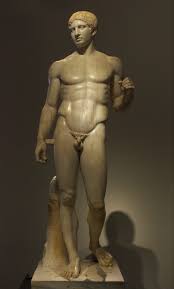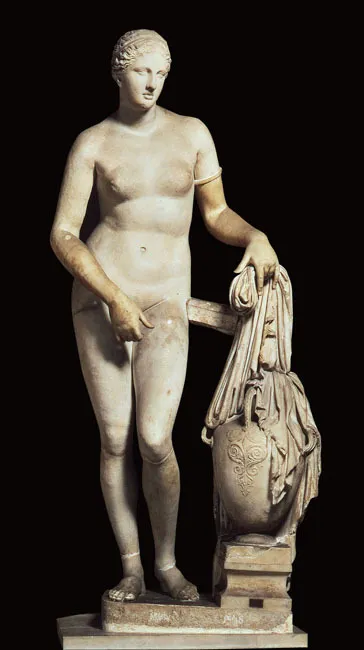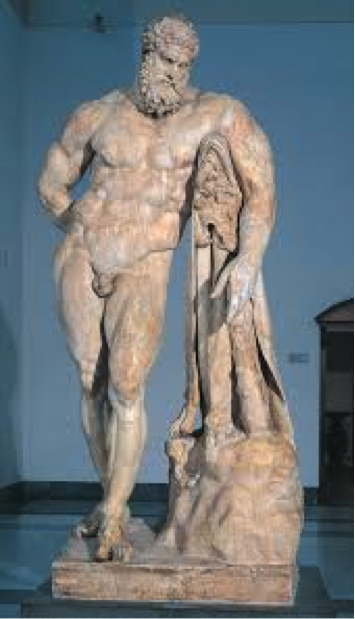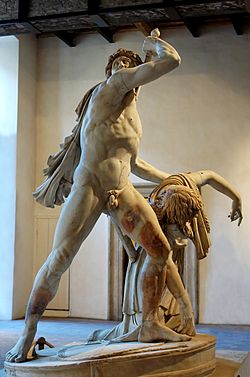Lecture 8: Late Classical and Hellenistic Art
1/8
There's no tags or description
Looks like no tags are added yet.
Name | Mastery | Learn | Test | Matching | Spaced |
|---|
No study sessions yet.
9 Terms
Panathenaic procession
Ceremonial march from the city to the Acropolis to present a new robe (peplos) for the statue of the goddess Athena, reinforcing civic pride and religious devotion
Wet drapery technique
Heaviness of drapery looks wet
Looks like it has weight
Seen in classical period
Realism
Depicts every day life
Humanizing
Focus on the human experience, emotions, and expression within art
Shifts from idealized forms to more realistic representations
Emotionalism
Expression of emotion

Doryphoros (Spear Bearer)
He is made of bronze and stands in contrapposto. His body shoves movement, while his face is composed. He was most likely an athletic figure which symbolizes strength. He is much more naturalistic compared to Kritios Boy.

Aphrodite of Knidos
The piece was placed in a circular temple to be viewed from all sides. Aphrodite is naked which hasn’t been seen for centuries. Her robe has been removed and she’s stepping into her bath. She covers herself which shows vulnerability. Her legs are posing like contrapposto and the piece is humanizing.

Weary Herakles
Herakles appears tired, an example of emotionalism. There’s a mix of vulnerability and power given the muscles. He is holding apples in his hands. The figure shows contrapposto.

Gaul Killing Himself and His Wife
This is a Greek Hellenistic sculpture and the style is naturalistic. The facial expressions show grief and pain. Gaul chooses to kill himself rather than be taken. This is an act of suicide from someone who isn’t Greek.